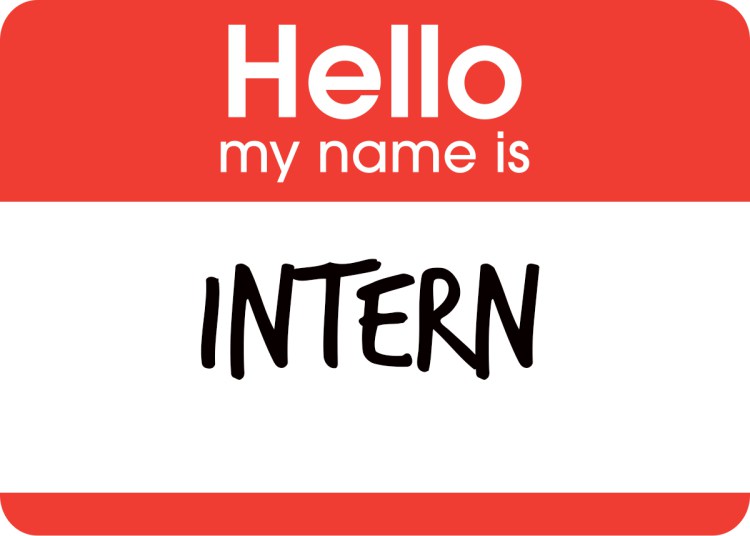
Hello all, this is Jack Maginnes, a rising 2nd-year student majoring in Computer Science at the Georgia Institute of Technology. Today, I want to tell you about my first internship experience as a cloud engineer and share some insights on what to expect as an intern in this field.
Landing the Internship: Casting a Wide Net
After completing my first year at school, I was eager to gain practical experience during the summer. However, I wasn’t sure if anyone would hire me with just one year of schooling. Uncertain about the application process and the initial weeks on the job, I decided to share my resume and aspirations with everyone I knew.
I cast a wide net, applying to 42 positions, and received responses from only 6 of them. Out of those 6, I was granted 2 interviews and eventually landed 1 job. It may seem like a risky strategy, but for me, it increased the chances of getting hired and gaining valuable experience. Also, having multiple offers to choose from is a great problem to have!
The Unexpected Journey as a Cloud Engineer
Interestingly, I secured my internship not through the usual online application process, but through a recommendation. Upon discovering that my resume lacked luster and relevant experience, I sought the advice of my academic advisor. She suggested attaching my resume to an email and reaching out to family, close friends, and acquaintances who might have connections in the industry.
One such connection led me to my internship as a cloud engineer. Although I had no prior experience working with cloud technologies, I accepted the opportunity, even though I had no idea what AWS (Amazon Web Services) was until my first day on the job. Naturally, I was apprehensive about my lack of knowledge in the field.
Overcoming the Fear and Embracing the Challenge
On my first day, I was anxious about being ill-prepared and perceived as incompetent. As a cloud engineer who didn’t even know what AWS was, it couldn’t get much worse, or so I thought. The initial day went by without any major events, as we had internship orientation and I settled into my workspace.
However, on the second day, reality hit hard. I was given my AWS console login and tasked with writing a basic script in Go to retrieve files from an S3 bucket. The problem was, I didn’t know Go either. Panic set in, and I feared I would be the first intern ever fired within a week.
Rather than succumbing to my fears, I decided to get to work. I turned to YouTube to quickly brush up on Go’s syntax and how it differed from Java’s object-oriented concepts that I was familiar with. Alongside that, I familiarized myself with the AWS SDK for Go.
With newfound knowledge, I began writing the script. It took intense concentration, countless consultations with GoLand IDE and Stack Overflow (if you catch my drift), but after a few hours, I finished. The script may seem trivial now, but at the time, it was a significant accomplishment for me.
The Value of Resourcefulness and Asking for Help
Submitting my code for review and nervously pinging my boss, I expected the worst. However, to my surprise, I received a response within minutes that said, “That was fast. Looks great, I have accepted your request!” I couldn’t help but smile, knowing that I had successfully completed a task in an unfamiliar language and with a service I had just learned about.
As the weeks went by, I continued to work on various AWS services like DynamoDB, CloudFormation, and API Gateway, which I had limited knowledge of. However, I discovered that by maintaining focus, setting distractions aside, and seeking help when needed, I could overcome any obstacles.
Asking questions initially felt daunting, as I was concerned about appearing incompetent. But I soon realized that my boss was aware of my background and the challenges I faced. He was supportive and understanding, always ready to clarify even the simplest doubts. I learned that asking for help is an essential skill in a fast-paced learning environment.
Conclusion
In conclusion, my first internship as a cloud engineer was a journey of growth, overcoming challenges, and acquiring valuable skills. Despite entering the role with limited knowledge, I was able to adapt and learn on the job. The experience taught me that with determination, resourcefulness, and a willingness to ask for help, I could tackle tasks that initially seemed impossible.
So, if you find yourself in a similar situation, remember that even the most daunting tasks can be conquered. Embrace the unknown, believe in your abilities, and push yourself to new heights.
Happy programming and best of luck on your internship journey!
FAQs
-
How can I increase my chances of landing an internship?
To increase your chances of landing an internship, cast a wide net and apply to a variety of positions. Don’t be discouraged by rejection; keep learning and refining your skills. Additionally, leverage your personal and professional networks to seek recommendations and referrals. -
Is it normal to feel overwhelmed during the early stages of an internship?
Yes, feeling overwhelmed during the early stages of an internship is entirely normal. Remember that you were hired for your potential and willingness to learn. Reach out for guidance and support from your colleagues and superiors, as they understand your situation and are often more than willing to help. -
How important is it to ask questions when facing challenges?
Asking questions is crucial when facing challenges during an internship. It shows your willingness to learn and grow. Don’t hesitate to seek clarification or guidance from your team members or mentors. Remember, asking questions is a sign of initiative and a desire to better understand the tasks at hand. -
What skills should I focus on developing before starting an internship as a cloud engineer?
Before starting an internship as a cloud engineer, it is essential to have a basic understanding of cloud computing concepts and popular cloud platforms like AWS, Azure, or Google Cloud. Additionally, acquiring programming skills in languages such as Python, Java, or Go will be beneficial for scripting and automation tasks. -
How can I make the most of my internship experience?
To make the most of your internship experience, embrace new challenges, take ownership of your projects, and seek opportunities for professional growth. Build relationships with your colleagues and mentors, and don’t hesitate to ask for feedback. Finally, document your accomplishments and learnings to showcase your experience on your resume.

